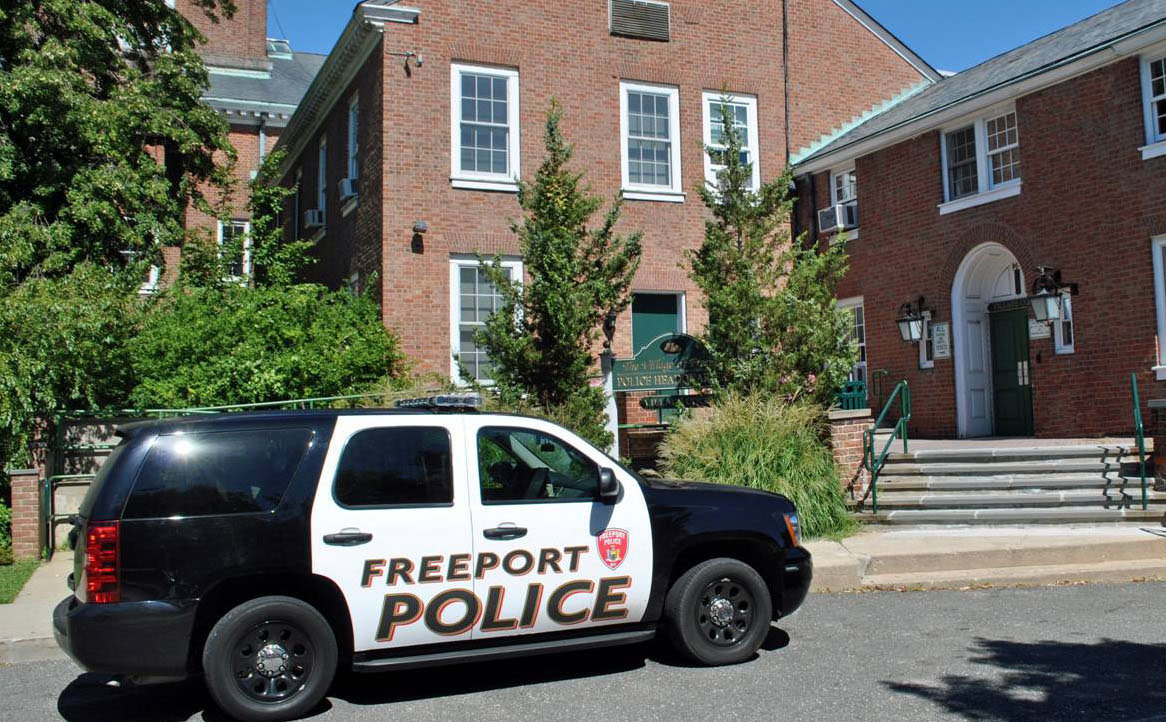Mayors seek changes in discovery law
NYCOM asks state to change discovery law
Village and city officials from across New York joined the New York Conference of Mayors in Albany on Monday to send a message to state lawmakers that a new criminal discovery law is costing municipalities millions of dollars in local tax dollars, and needs to be changed. They suggested a series of amendments to the law.
Freeport Mayor Robert Kennedy said the law would cost the village $2.7 million this year. Kennedy, the president of NYCOM, has decried the financial impact of the measure since October.
The new law requires local law enforcement officials to turn over all evidence, including video, for every case to the local district attorney, who then passes it on to defense attorneys. Previously, officials only had to provide the evidence for certain cases. Local mu-nicipalities, in-cluding Freeport, have had to add personnel to keep up with the new law’s requirements.
NYCOM Executive Director Peter Baynes said the mayors group has worked since the end of last year to “constructively address the impact of state criminal justice requirements” that are now in effect, adding that those requirements have placed “an unfair burden on our cities and villages.”
“We have ad-vanced a series of reasonable [proposed amendments to the law] in the hope of minimizing the unintended fiscal consequences of the newly enacted discovery reform measures,” Baynes said.
NYCOM is asking that state lawmakers:
- Ensure that villages and cities are provided with additional financial and operational support to offset the cost of criminal discovery.
- Allow prosecutors 60 days to disclose evidence to the defense in criminal cases. Under the new law, they have only 15.
- Exclude from the accelerated discovery requirements any charge not involving a misdemeanor or felony.
- Adjust the 20-day arraignment requirement to accommodate local courts that meet daily.
- Require expedited discovery only when defendants are incarcerated.
- Make discovery in felony cases not applicable until after indictments.
- Provide a stay from discovery requirements for 30 days involving cases that may be subject to plea discussions.
- Allow for withholding of sensitive information, such as victim contact information, without having to obtain a court order.
NYCOM officials note that the unfunded discovery requirement is hard to meet without exceeding the state’s 2 percent tax-levy cap — Freeport will raise taxes this coming year for the first time in seven years. They will rise 5.23 percent.
Municipalities are supposed to save money, because fewer people will be incarcerated in local jails because of a recently passed bail-reform law. Nassau County will reap those savings, however, not Freeport, village officials pointed out.
State Sen. John Brooks, a Democrat from Seaford, introduced two new Senate bills — S.7608 and S.7609 — to address the question of criminal discovery on Jan. 29. The bills are supposed to help municipalities like Freeport.
Bill S.7608 would extend the timeline for a speedy trial to 90 days, from 30, to give police departments more time to process criminal discovery paperwork. It would also apply to building code, traffic and parking violations.
And Bill S.7609 would extend the discovery period from 15 days to 60 days, except in New York City. The extension would give smaller communities, like Freeport, more time to provide district attorneys’ offices with documents, evidence and logs.
“The health, safety and well-being of New York’s taxpayers is our top priority,” Kennedy said. “We are urging state officials to amend legislation recently enacted related to discovery measures that, if left unchanged, will result in widespread municipal budget crises and a corresponding tax impact on local taxpayers.”

 41.0°,
Fair
41.0°,
Fair 





